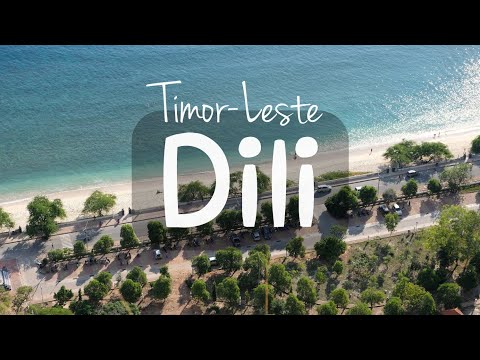
Dili, the charming capital of Timor Leste, offers a unique blend of historical depth, cultural richness, and natural beauty. As the largest city and main hub of Timor Leste (also known as East Timor), Dili stands on the northern coast of this young nation. The city not only serves as the administrative heart but also acts as a window into the everyday lives of its resilient and vibrant citizens. Here’s an inside look at daily life in Dili.
#### A City Rebuilding
Since gaining independence from Indonesia in 2002 after a tumultuous struggle, Timor Leste has been on a steady trajectory of reconstruction and revival. Dili, being at the forefront, showcases this vibrant recovery. Infrastructure development is ongoing, with new roads, government buildings, and businesses emerging steadily. Despite these advancements, signs of past conflicts are visible in some parts which add to the profound history that shapes today’s atmosphere.
#### Daily Routines
Life in Dili starts early with locals often up at dawn to enjoy cooler temperatures. Many head to local markets like Taibessi Market to buy fresh produce including tropical fruits, vegetables, and freshly caught fish — essential ingredients for Timorese cuisine. Despite its growing economy, many citizens engage in small-scale trading and agriculture reflecting a still predominantly rural lifestyle that influences urban Dili.
Motorbikes and microlets (small buses) buzz through the streets while pedestrians navigate bustling sidewalks under tropical sun. The cityscape is dotted with Portuguese-style buildings alongside modern constructions reflecting its colonial past and independent present.
#### Culture and Cuisine
Timor Leste’s culture is a rich tapestry woven from various ethnic groups primarily Timorese mixed with Portuguese influences as well as Asian touches from nearby Southeast Asian countries. This diversity is mirrored in Dili’s culinary scene which includes everything from traditional dishes like “ikat” (a spicy curry stew) to Portuguese favorites such as “bacalhau” (dried and salted cod).
Cultural centers and museums offer insights into both traditional practices such as tais weaving – an indigenous form of textile making -and contemporary issues facing this developing nation. Regular cultural events celebrate both indigenous heritage and national identity formation after years of foreign domination.
#### Education & Development
Education has seen significant emphasis post-independence with numerous schools opening up around Dili. The government along with various international NGOs continues efforts to improve educational facilities aiming towards nurturing future generations capable of leading further development.
Universities like Universidade Nacional Timor Lorosa’e are pivotal in shaping young minds while focusing on subjects crucial for national development such as political science public administration engineering agriculture among others.
#### Leisure Activities
Despite its turbulent history leisure has a place in daily life too particularly along beachfront areas where locals enjoy seaside activities during weekends or late afternoons when heat subsides slightly; popular spots include Cristo Rei Beach named after iconic statue Christ overlooking bay area providing scenic views during hikes up surrounding hills.
Diving enthusiasts explore coral reefs off Atauro Island just short boat ride away famous for biodiversity pristine waters allure divers worldwide seeking untouched marine landscapes.
Moreover sporting events particularly football bring communities together offering moments joy collective enthusiasm sport plays considerable role social cohesion within communities across country increasing popularity sports like volleyball basketball also evidence expanding interest variety athletic pursuits among youth balancing recreational academic responsibilities.
#### Conclusion
Everyday life in Dili embodies resilience transformation spirit people who despite hardships continue strive better future themselves their country; it’s place where past meets present forging path ahead while celebrating what makes it uniquely East Timorese — sense community intertwined rich cultural heritage undeniable beauty surrounding natural landscapes.
Whether visiting exploring deeper living here one cannot help but be moved by enduring optimism palpable energy emanating every corner this captivating capital city Timor Leste.
